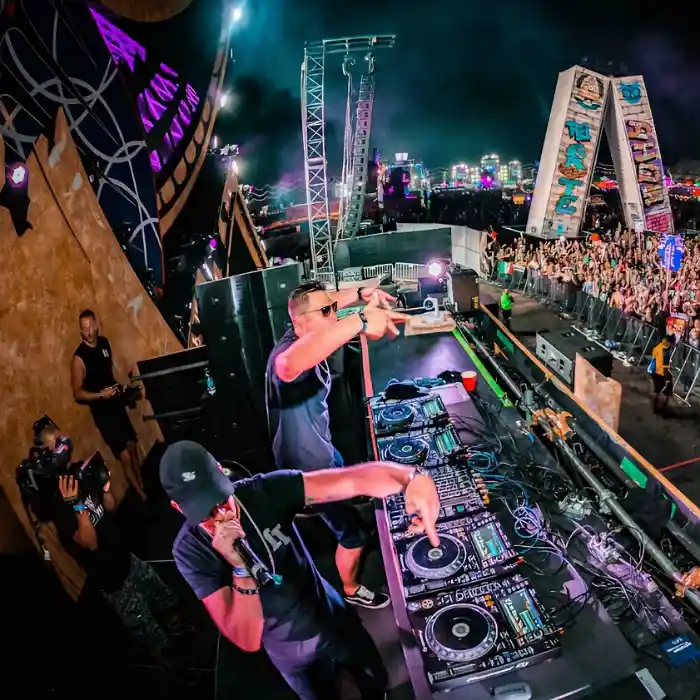Music and Gaming A Harmonious Partnership

Music and Gaming: A Harmonious Partnership
The worlds of music and gaming have long been intertwined, with soundtracks serving as integral components of immersive gameplay experiences. However, in recent years, this relationship has evolved into something far more profound. The synergy between these two cultural behemoths is now driving innovation, reaching new audiences and redefining entertainment.
The marriage of music and gaming offers a plethora of opportunities for both artists and game developers. By incorporating original music into game narratives, developers can enhance emotional connections with players, while artists can reach a vast and dedicated fanbase. For instance, casino Offers often capitalize on this synergy by featuring game-themed slots or providing in-game rewards for music enthusiasts.
A Case Study: Imagine Dragons and Arcane
One of the most striking examples of synergistic entertainment marketing is the collaboration between Imagine Dragons and the Netflix series Arcane, a visually stunning adaptation of the popular video game League of Legends. The band’s music proved to be an ideal sonic complement to the show’s gritty, cyberpunk aesthetic, perfectly capturing the dark, yet hopeful undertones of its narrative.
By aligning their sound with the series’ atmosphere, Imagine Dragons not only introduced their music to a vast new audience of gamers but also deepened the emotional impact of Arcane, transforming it into a cultural phenomenon. This strategic partnership serves as a prime example of how music can elevate storytelling and expand a brand’s reach.
The Rise of Virtual Concerts
Beyond traditional collaborations, we’re witnessing the emergence of virtual concerts within gaming platforms. Artists like Travis Scott and Ariana Grande have performed live in-game, attracting millions of viewers and blurring the lines between the digital and physical worlds. These events offer unique opportunities for fan engagement and create new revenue streams for both artists and game developers.
These virtual concerts transcend the limitations of physical venues, allowing for elaborate stage designs, special effects and interactive elements that would be impossible to replicate in real life. For instance, artists can perform in fantastical environments or create unique avatars that interact with the virtual audience. Additionally, virtual concerts can offer features like social interaction spaces where fans can connect with each other before, during, and after the show, fostering a strong sense of community.
The accessibility of virtual concerts is another major advantage. Fans from all over the world can attend these events without the need for travel or expensive tickets. This opens up new opportunities for artists to connect with a global audience and for fans to discover new music from around the world.
Furthermore, virtual concerts offer new possibilities for merchandise sales and virtual goods. Fans can purchase digital items like avatars, clothing and exclusive experiences within the virtual concert environment, creating additional revenue streams for artists and game developers.
Interactive Music Experiences
The rise of interactive music experiences is another exciting development. Games like Guitar Hero and Rock Band have long allowed players to become virtual musicians, but new technologies are pushing the boundaries even further.
These games not only provided entertainment but also served as a platform for aspiring musicians to showcase their talents and develop their skills. Virtual reality (VR) is enabling immersive musical experiences, where players can create, perform and collaborate with others in virtual spaces.
Beyond gaming, there’s a growing trend of interactive music installations and software. These experiences often combine music with other art forms like visual arts and technology, creating unique and engaging environments. For instance, some installations allow users to physically interact with sound, shaping melodies and rhythms through movement.
Additionally, music creation software is becoming increasingly accessible and intuitive, empowering individuals to experiment with sound design and composition without prior musical training. These developments are democratizing music creation and fostering a new wave of musical creativity.
A Limitless Future
As technology continues to advance, we can expect even more innovative and groundbreaking collaborations between music and gaming. The potential for storytelling, world-building and fan engagement is limitless. By combining the emotional power of music with the immersive nature of gaming, creators can deliver truly unforgettable experiences that resonate with audiences on a profound level.
The convergence of music and gaming represents a cultural phenomenon that is reshaping entertainment as we know it. This dynamic partnership has evolved from a supporting role to a driving force, igniting innovation, captivating audiences and redefining artistic expression.
As technology continues to advance, the possibilities for this symbiotic relationship are seemingly boundless. From immersive virtual concerts and interactive music experiences to the integration of original soundtracks into compelling narratives, the fusion of these two mediums is creating a new era of entertainment that is both emotionally resonant and commercially viable.
The future holds immense promise for artists, game developers and audiences alike as they collaborate to push the boundaries of creativity and explore uncharted territories in the realm of music and gaming.















